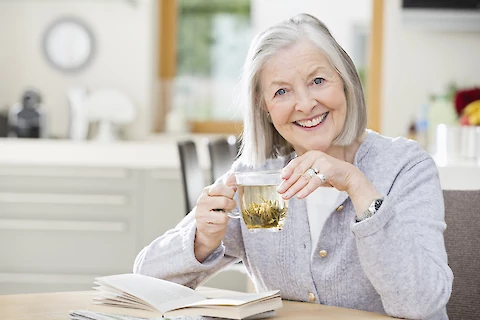
Staying adequately hydrated is crucial at any age, but it becomes imperative for seniors. Their unique health needs and physical changes increase their risk of getting dehydrated, which can exacerbate existing health conditions. Therefore, understanding the importance of hydration and recognizing the signs of dehydration in seniors is critical to caregiving.
Understanding the Importance of Hydration for Seniors
Hydration plays a pivotal role in maintaining overall health. For seniors, proper hydration can make a significant difference. It aids digestion, supports heart health, maintains kidney function, and even lubricates the joints. Furthermore, being well-hydrated can help prevent falls, a standard risk among seniors, by maintaining cognitive function and balance. Conversely, dehydration can exacerbate existing conditions such as kidney stones, urinary tract infections, heart disease, and low blood pressure.
Identifying Signs of Dehydration in Seniors
Recognizing signs of dehydration early can help prevent severe health issues. However, typical signs such as thirst may not be the best indicators in seniors, as their sense of thirst becomes dull with age. Instead, caregivers should watch for dry mouth, fatigue, confusion, headaches, and decreased urine output. More severe signs include rapid heart rate, low blood pressure, and dizziness. If these symptoms persist, it is crucial to seek medical help promptly.
Unique Hydration Challenges Faced by Seniors
Several factors make seniors more susceptible to dehydration. Age-related changes, for instance, reduce the body's water content, making them more prone to dehydration. Certain medications, like diuretics used to treat high blood pressure, can increase urine output, further enhancing the dehydration risk. Cognitive decline and conditions such as dementia can cause seniors to forget to drink, while mobility challenges may make it difficult for them to get a drink independently. Understanding these factors can help caregivers devise strategies to increase fluid intake.
Practical Strategies for Ensuring Adequate Fluid Intake
Ensuring seniors drink sufficient fluids can be a challenge. However, caregivers can adopt several strategies to help. Firstly, keep fluids within easy reach of seniors throughout the day to encourage regular sipping. Secondly, try to make fluids more appealing by adding a slice of fruit for flavor or serving herbal tea.
The Role of In-Home Care in Senior Hydration
Professional in-home caregivers are well-equipped to monitor hydration in seniors effectively. They are trained to recognize subtle signs of dehydration and can ensure that hydration remains a priority in daily care. Professional caregivers understand the importance of hydration for senior health and are dedicated to assisting seniors in maintaining optimal hydration levels.
Senior Helpers Lake Norman Ensures Seniors Stay Hydrated
Understanding the significance of hydration in seniors, recognizing the signs of dehydration, and implementing strategies to ensure sufficient fluid intake is vital for effective caregiving. Remember, as a caregiver, your role is indispensable in promoting and maintaining the health of your loved one. If you need additional support, please don't hesitate to reach out to the professionals who understand your challenges. Consider seeking the help of Senior Helpers Lake Norman, offering exceptional in-home care services aimed at fostering seniors' health and wellness in Mooresville, Huntersville, Statesville, Cornelius, and Davidson. Contact us today for a consultation and ensure your loved ones receive the best possible care.